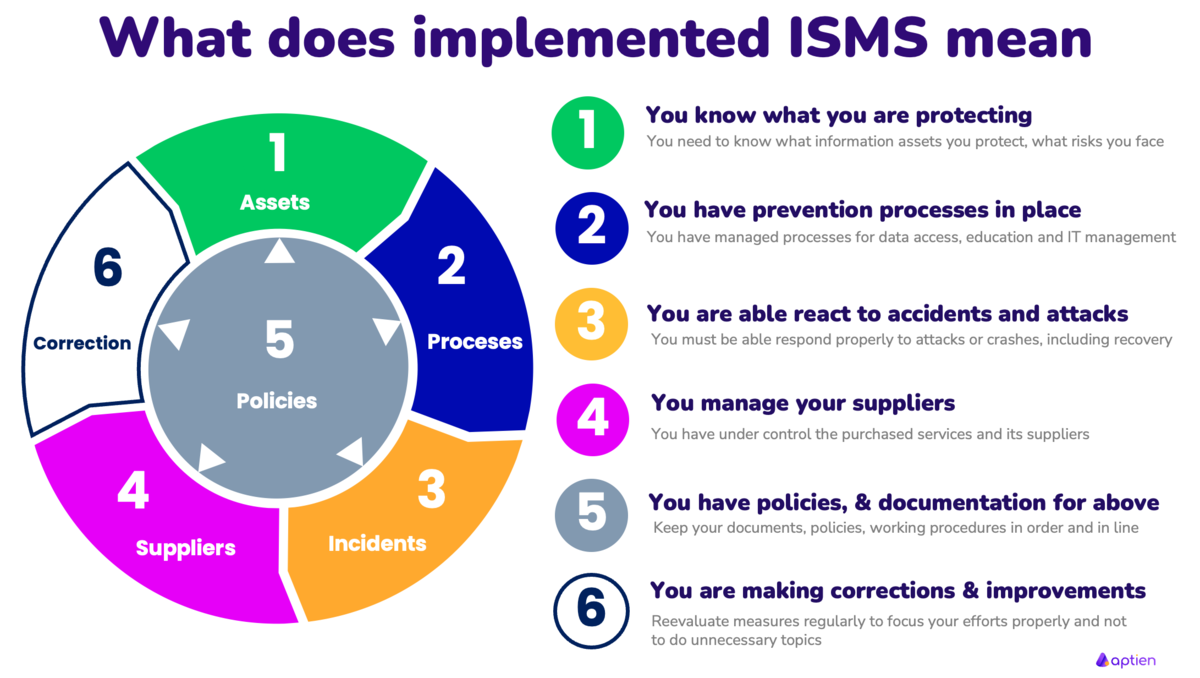Definition of ISMS
ISMS stands for Information Security Management System, which refers to an established framework for managing information security within an organization. In practice, this means that processes for protecting information and information technology are systematically implemented and managed. An effective ISMS ensures a high level of security for information and IT assets. It is a fundamental component of information security standards, such as ISO 27001.
What does it mean that ISMS is implemented in the company?
The fulfillment and implementation of ISMS can be summarized as follows:
- Asset Identification and Risk Assessment: The organization knows what information it protects and why. It has identified its information assets and assessed their associated risks.
- Protective Measures: The organization has established processes and implemented information technologies to safeguard information and prevent attacks, disasters, accidents, and other incidents.
- Incident Response and Recovery: When a disaster, accident, attack, or incident occurs, the organization knows how to respond effectively and is capable of recovering.
- Supplier Control: The organization maintains contractual and procedural control over all suppliers that impact information security.
- Response & Continuous Improvement: The organization fosters a mindset of correction, feedback, and continuous improvement, adapting to ever-changing conditions—what worked yesterday may not work tomorrow.
- Documentation and Governance: All the above points are documented in company policies, procedures, and documents that govern all processes and personnel.
Benefits of implemented ISMS
Using an ISMS information security management system, an organization is able to assess risks and apply appropriate control and management mechanisms to maintain information security. The goal of an ISMS is to protect an organization's information assets so that information does not fall into the wrong hands or is lost.
- an ISMS in place reduces the risk of information loss and reduced market reputation
- for business partners, an established ISMS is a sign of seriousness
- The ISMS contains best practices
